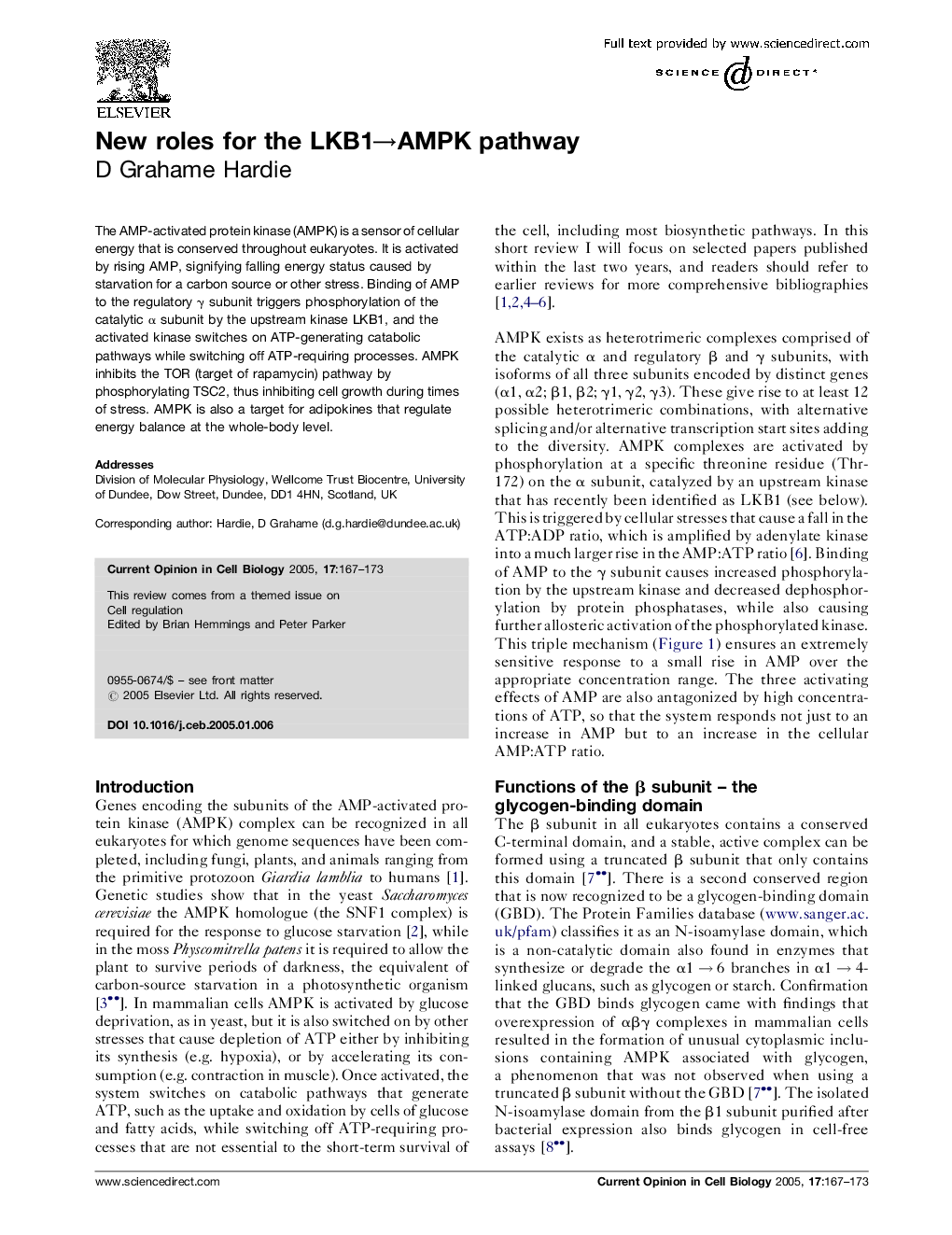| Article ID | Journal | Published Year | Pages | File Type |
|---|---|---|---|---|
| 10929614 | Current Opinion in Cell Biology | 2005 | 7 Pages |
Abstract
The AMP-activated protein kinase (AMPK) is a sensor of cellular energy that is conserved throughout eukaryotes. It is activated by rising AMP, signifying falling energy status caused by starvation for a carbon source or other stress. Binding of AMP to the regulatory γ subunit triggers phosphorylation of the catalytic α subunit by the upstream kinase LKB1, and the activated kinase switches on ATP-generating catabolic pathways while switching off ATP-requiring processes. AMPK inhibits the TOR (target of rapamycin) pathway by phosphorylating TSC2, thus inhibiting cell growth during times of stress. AMPK is also a target for adipokines that regulate energy balance at the whole-body level.
Related Topics
Life Sciences
Biochemistry, Genetics and Molecular Biology
Cell Biology
Authors
D Grahame Hardie,
